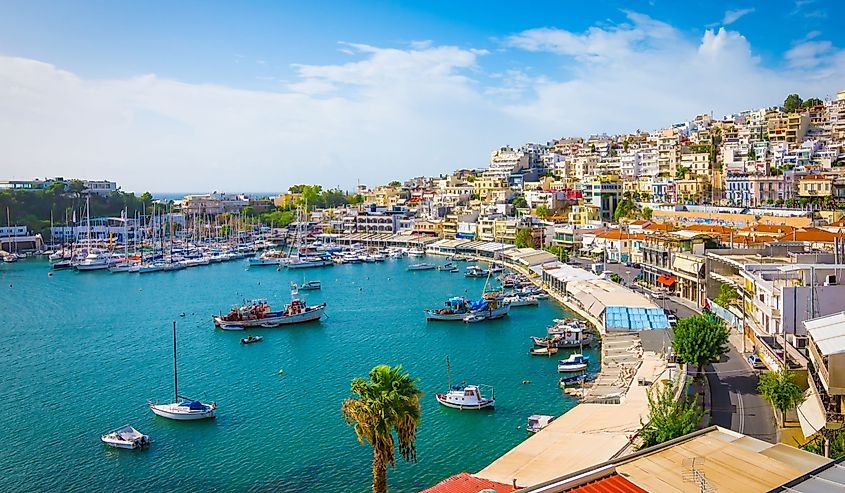Internal government documents obtained by CBS News show the Trump administration has expanded its campaign to persuade countries around the world to aid its crackdown on illegal immigration by accepting deportations of migrants who are not their own citizens.
The documents indicate Uganda in East Africa recently agreed to accept deportees from the U.S. who hail from other countries on the continent, as long as they don’t have criminal histories. It’s unclear how many deportees Uganda would ultimately accept under the arrangement with the U.S. government.
Honduras’ government has also agreed to receive deportees from other Spanish-speaking countries in Latin America, including families traveling with children, the documents show. The government of Honduras agreed to a relatively small number of deportations — just several hundred over two years — but the documents indicate it could decide to accept more.
Both agreements are based on a “safe third country” provision of U.S. immigration law that allows officials to reroute asylum-seekers to countries that are not their own if the U.S. government makes a determination that those nations can fairly hear their claims for humanitarian protection.
The two bilateral deals outlined in the internal documents are part of a large-scale diplomatic effort that President Trump’s administration has staged to strike deportation arrangements with nations across several continents, including those with problematic human rights records. The administration has argued those agreements are key to its mass deportation campaign, since there are some migrants who can’t easily be deported to their home countries because of strained diplomatic relations or other reasons.
At least a dozen countries have already accepted or agreed to accept deportees from other nations since the second Trump administration took office, and U.S. officials have been aggressively courting other governments. Internal government documents show the Trump administration has also asked countries like Ecuador and Spain to receive these so-called third country deportees from the U.S.

Representatives for the Department of Homeland Security did not respond to requests to comment on CBS News’ reporting.
A senior State Department official said, “We don’t comment on the content of private diplomatic negotiations, but the State Department is doing everything possible to support the President’s policy of keeping Americans safe by removing illegal aliens who have no right to be in the United States.”
Earlier this summer, the Supreme Court gave the Trump administration the green light to deport migrants to third countries with a minimal degree of notice and due process. The decision paved the way for the administration to continue expanding a practice it has relied on since the beginning of Mr. Trump’s second term.
In February, the Trump administration convinced Costa Rica and Panama to take in several hundred African and Asian migrants who had claimed asylum along the U.S.-Mexico border. Then, in March, the U.S. flew more than 200 Venezuelans accused of gang membership to El Salvador, where they were held incommunicado for months at a notorious prison until they were returned to Venezuela last month under a prisoner swap.
The administration has also sent immigrants convicted of violent crimes and who hail from Cuba, Jamaica, Mexico, Laos, Myanmar, Yemen and other countries to violence-torn South Sudan and the tiny southern African kingdom of Eswatini. Guatemala, Kosovo and Rwanda have announced they will receive deportees from the U.S. who come from other nations.
Last week, the State Department said the U.S. had signed a “safe third country” asylum agreement with Paraguay. Mexico, under an arrangement that predates Mr. Trump’s second term, accepts the return of some Latin American migrants who crossed the U.S. southern border illegally.
Human rights advocates have strongly denounced the Trump administration effort, saying migrants could be deported to countries where they could be harmed or returned to the place they fled. Some of the countries persuaded to sign deportation agreements have been plagued by reports of human rights abuses.
In a report released last week, the State Department described “negative developments in the human rights situation in Uganda,” citing unlawful killings, “arbitrary” arrests, disappearances and a lack of action from the government to curb human rights abuses. The report also noted, however, that Uganda has worked with United Nations officials to provide humanitarian protection to refugees.
Doris Meissner, who oversaw the now-defunct Immigration and Naturalization Service under the Clinton administration, said the U.S. government has long faced difficulties deporting some migrants due to diplomatic constraints. But she noted efforts to deport them to third countries were generally undertaken in “exceptional” cases only.
Meissner, who is now a senior fellow at the Migration Policy Institute think tank, suggested the Trump administration may be employing different sources of leverage — like threats of visa sanctions and funding commitments — to persuade as many countries as possible to take in deportees from other nations.
Noting deportations to third countries remain relatively limited in scale, Meissner said a main driver behind the Trump administration’s diplomatic efforts is a desire to send a message of deterrence to those in the U.S. illegally, one that highlights the possibility that they could be sent to distant countries where they have no ties.
“The broader reason beyond that is fear and intimidation and ultimately, incentivizing self deportation,” she said.
Camilo Montoya-Galvez is the immigration reporter at CBS News. Based in Washington, he covers immigration policy and politics.






